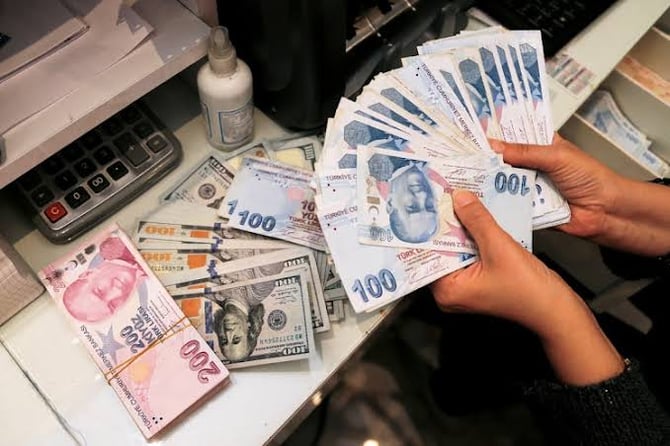Turkey Makes Policy About Turn as Lira Plunges

Turkey's central bank has raised its key interest rate by a substantial 650 basis points, up to 15%, the first increase since early 2021.
After President Recep Tayyip Erdogan’s re-election, his government is now embarking on a new economic policy direction. The primary goal of the new cabinet is to address the crippling economic crisis that Turkey is facing.
Inflation rates have skyrocketed and the country's currency, the lira, has reached record lows. This crisis has resulted in a high cost of living for Turkish citizens and depleted foreign reserves.
The central bank's decision to raise interest rates is a significant shift from Erdogan's previous approach. For years, he had been implementing a policy of monetary easing, gradually reducing the one-week repo rate from 19% in 2021 to 8.5%. However, this recent hike marks a change in strategy.
Turkey's annual inflation rate stood at a staggering 40% last month. This came after it had hit a 24-year high of over 85% in October of the previous year.
What does this mean for me?
Turkey’s currency is reeling, losing as much as 2.8% in one-day trading against the dollar last week and reaching a new record low of 25,2015 to the greenback at one point.
With a change in policy marked by this interest rate hike, the government is taking proactive steps to tackle the economic crisis head-on and stabilize the situation. Analysts are watching to see if these measures prove effective in bringing about the desired changes.
More News
.webp)
US Dollar Faces Biggest 6-Month Drop in Half a Century
4 months ago
.webp)
Dollar Slips to Three-Year Low as Trump Eyes Early Fed Appointment
4 months ago
.webp)
AI-Powered Trading Bots Bring a New Kind of Threat
6 months ago
.WEBP)
Euro Value Surges as Markets React to Tariff Shock
7 months ago

Euro’s Slide: What’s Behind the Drop and What’s Next?
10 months ago

Sterling Gains Against Euro as Central Banks Move Apart
11 months ago

Euro Remains Steady Amid Tariff Threats
11 months ago

Euro Stays Under Pressure Amid Economic and Political Shifts
1 year ago